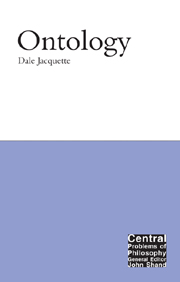Preface
Summary
This book investigates and proposes a theory to solve the most fundamental problems of being. I know how that sounds. But trying to understand the meaning, the undeniable but non-self-explanatory fact and nature of existence, is indispensable to philosophy. Accordingly, we must not shrink from the task, whatever difficulties are entailed.
I distinguish between pure philosophical and applied scientific ontology. Pure philosophical ontology deals with such questions as what is meant by the concept of being, why there exists something rather than nothing, and why there exists exactly one logically contingent actual world. Applied scientific ontology advances a preferred existence domain consisting of three categories of existent entities, including existent (we can also say actual) objects, existent states of affairs, and the actual world. The actual world is itself an entity, one that contains all other entities; it contains all and only actual states of affairs, involving all and only existent objects. The entities included in a theoretical ontology are those minimally required for an adequate philosophical semantics, the things to which we must be able to refer in order to make sense of meaningful thought and discourse, especially in the sciences. These are the objects that we say exist, to which we are ontologically committed.
The problems of pure philosophical ontology have seemed so deep or confused that philosophers who concentrate primarily on the concept of being as such have acquired an occasionally deserved reputation for obscurity and even incoherence.
- Type
- Chapter
- Information
- Ontology , pp. xi - xivPublisher: Acumen PublishingPrint publication year: 2002

